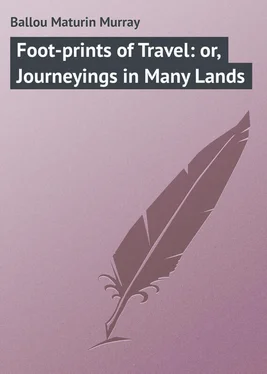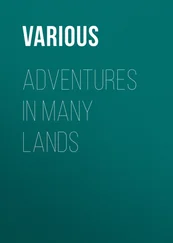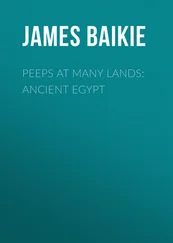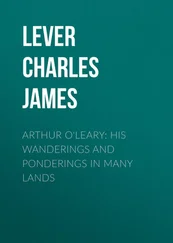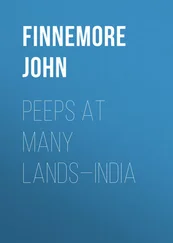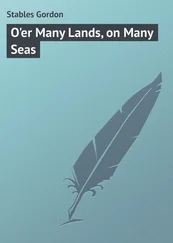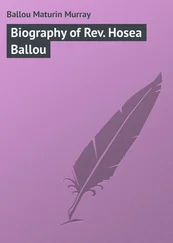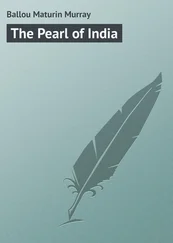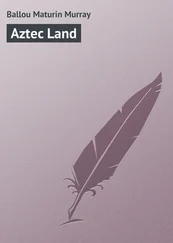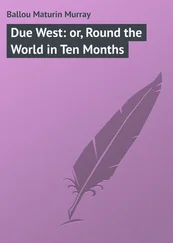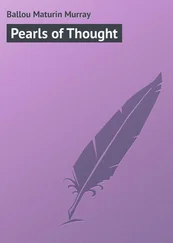Maturin Ballou - Foot-prints of Travel - or, Journeyings in Many Lands
Здесь есть возможность читать онлайн «Maturin Ballou - Foot-prints of Travel - or, Journeyings in Many Lands» — ознакомительный отрывок электронной книги совершенно бесплатно, а после прочтения отрывка купить полную версию. В некоторых случаях можно слушать аудио, скачать через торрент в формате fb2 и присутствует краткое содержание. Жанр: foreign_prose, foreign_language, на английском языке. Описание произведения, (предисловие) а так же отзывы посетителей доступны на портале библиотеки ЛибКат.
- Название:Foot-prints of Travel: or, Journeyings in Many Lands
- Автор:
- Жанр:
- Год:неизвестен
- ISBN:нет данных
- Рейтинг книги:3 / 5. Голосов: 1
-
Избранное:Добавить в избранное
- Отзывы:
-
Ваша оценка:
- 60
- 1
- 2
- 3
- 4
- 5
Foot-prints of Travel: or, Journeyings in Many Lands: краткое содержание, описание и аннотация
Предлагаем к чтению аннотацию, описание, краткое содержание или предисловие (зависит от того, что написал сам автор книги «Foot-prints of Travel: or, Journeyings in Many Lands»). Если вы не нашли необходимую информацию о книге — напишите в комментариях, мы постараемся отыскать её.
Foot-prints of Travel: or, Journeyings in Many Lands — читать онлайн ознакомительный отрывок
Ниже представлен текст книги, разбитый по страницам. Система сохранения места последней прочитанной страницы, позволяет с удобством читать онлайн бесплатно книгу «Foot-prints of Travel: or, Journeyings in Many Lands», без необходимости каждый раз заново искать на чём Вы остановились. Поставьте закладку, и сможете в любой момент перейти на страницу, на которой закончили чтение.
Интервал:
Закладка:
Queen Street is the principal thoroughfare, and is lined with handsome stores and fine edifices, there being no lack of architectural excellence in either public or private buildings. Like its sister cities, it has a botanical garden, the climate here favoring even a more extensive out-door display of tropical and delicate vegetation than at Melbourne or Sydney. An intelligent spirit of enterprise is evinced by the citizens of Brisbane, and everything goes to show that it is destined to become a populous and prosperous business centre. Its climate, especially, is considered almost perfect. Queensland is very rich in gold-producing mines, but it has also almost endless rolling plains covered with herbage suitable for the support of great herds and flocks, where some fourteen millions of sheep are now yielding meat and wool for export, and where some three millions of cattle are herded. The real greatness of the country is to be found in its agricultural capacity, which is yet to be developed. A very pleasant trip may be enjoyed up the Brisbane River and Bremer Creek, on which latter stream Ipswich is situated. It is twice as far by water as by land, but the sail is delightful, often affording charming views of the city from the river, while at the same time passing suburban residences, flourishing farms, banana-groves, cotton-fields, sugar-plantations, and orange-orchards.
Queensland is more than five times as large as the United Kingdom of Great Britain and Ireland, and it possesses an immense amount of undeveloped resources of the most promising character. The sun shines here with much more tropical ardor than in New South Wales or Victoria. The palm takes the place of the eucalyptus to a certain extent. The tulip-tree, rosewood, sandalwood, and satin-wood, which are not observed further south, greet us here. The aborigines are oftener met than elsewhere, as they prefer to live in a more temperate climate than is found southward, and to be where they can have the country more to themselves. They probably do not number over thirty thousand in all, and are slowly but surely decreasing before the advance of the whites. Even when first discovered they were but a handful of people, so to speak, scattered over an immense territory. They have still no distinct notion of the building of houses in which to live, or at least they adopt none, though they have the example of the whites constantly before them. They are very ugly, having black skins, flat noses, wide nostrils, and deep-sunken eyes wide apart. A bark covering, much ruder than anything which would content an American Indian, forms their only shelter, and they often burrow contentedly under the lee of an overhanging rock or hillside.
The Australian blacks have plenty of legends of the most barbaric character, but by no means void of poetical features. They believe that the earth was created by a being of supreme attributes, whom they call Nourelle, and who lives in the sky. They entertain the idea that because the sun gives heat it needs fuel, and that when it descends below the horizon it procures a fresh supply for its fires. The stars are supposed to be the dwellings of departed chiefs. The serpent is believed to contain the spirit of a real devil. To eat the kidney of an enemy, it is thought by them, imparts to the one who swallows it the strength of the dead man. Any number above five, these blacks express by saying, "it is as the leaves," not to be counted. The white man's locomotive is an imprisoned fire-devil, kept under control by water. The lightning is the angry expression of some enraged god.
The most peculiar weapon possessed by these aborigines is one which originated with them, and is known as the boomerang, – of which every one has heard, but which few have seen. It is a weapon whose characteristics have caused its name to pass into a synonym for anything which turns upon the person who uses it. It seems at first sight to be only a flat, crooked, or curved piece of polished wood, about twenty-eight inches long and three-quarters of an inch in thickness. There is nothing remarkable about this weapon until we see a native throw one. In doing this he carefully poises himself, makes a nice calculation as to distance, raises his arm above his head, and brings it down with a sort of swoop, swiftly launching the curved wood from his hand. At first the boomerang skims along near the ground, then rises four or five feet, but only to sink again, and again to rise. As we carefully watch its course, and suppose it just about to stop in its erratic career, and drop, spent, to the ground, it suddenly ceases its forward flight, and rapidly returns to the thrower. It is thought that no white man can exactly learn the trick of throwing this strange weapon, and certainly few ever care to attempt it a second time.
Ethnologists tell us that these blacks belong to the Ethiopian race, – they are the lowest probably of all the human family. The conviction forces itself upon us that they must be the remnant of some ancient people of whom we have no historic record. When Australia was first taken possession of by the whites, it seems to have been, if the term is in any instance admissible, a God-forsaken land; certainly it was the most destitute of natural productions of any portion of the globe. We can well believe that before these blacks came hither, – perhaps a thousand years ago, – this land was untrodden by human beings.
No species of grain was known to these natives; not a single fruit worthy of notice grew wild, and not an edible root of value was produced. The only game of any size was the kangaroo and a few species of birds. Now, the trees, fruits, vegetables, and game of all regions have become domesticated here, proving to be highly productive, whether transplanted from tropical or from semi-tropical regions.
Queensland measures thirteen hundred miles from north to south, and is about eight hundred miles in width, containing a population at the present time of three hundred and forty thousand. The climate may be compared to that of Madeira, and it is entirely free from the hot winds which sometimes render Sydney and Melbourne so uncomfortable. Leaving out West Australia, which is yet so little developed, the country may be divided thus: Queensland is the best and most extensive grazing section; in this respect New South Wales comes next. South Australia is characterized by its prolific grain-fields, and Victoria is richest in auriferous deposits; but there is gold enough in all of these colonies to afford constant stimulus to mining enterprise, fresh discoveries in this line being made every month. It is proposed to separate the north of Queensland from the south, at the twenty-second parallel of latitude, and to form the northern portion into a separate colony. As Queensland is larger than England, France, and Belgium with Holland and Denmark combined, there can be no want of territory for such a political division: population, however, is needed.
We will now turn our steps southward, by the way of Sydney and Melbourne, to Tasmania. At the last-named city we take a coasting steamer passing down the river Yarra-Yarra, the muddiest of water-ways, until Bass's Strait is reached, across which the course is due-south for a hundred and twenty miles. This is a reach of ocean travel which for boisterousness and discomfort can be said to rival the English Channel, between Calais and Dover. As the coast of Tasmania is approached, a tall lighthouse, one hundred and forty feet above sea-level, first attracts the attention, designating the mouth of the Tamar River. While crossing the Strait we are surrounded by a great variety of sea-birds, among which are the cape-pigeon, the stormy petrel, and the gannet, which last is the largest of ocean birds next to the albatross.
On drawing still nearer to the shore, flocks of pelicans are observed upon the rocks, and that most awkward of birds, the penguin, is seen in idle groups. He is a good swimmer, but his apologetic wings are not intended for flying.
Читать дальшеИнтервал:
Закладка:
Похожие книги на «Foot-prints of Travel: or, Journeyings in Many Lands»
Представляем Вашему вниманию похожие книги на «Foot-prints of Travel: or, Journeyings in Many Lands» списком для выбора. Мы отобрали схожую по названию и смыслу литературу в надежде предоставить читателям больше вариантов отыскать новые, интересные, ещё непрочитанные произведения.
Обсуждение, отзывы о книге «Foot-prints of Travel: or, Journeyings in Many Lands» и просто собственные мнения читателей. Оставьте ваши комментарии, напишите, что Вы думаете о произведении, его смысле или главных героях. Укажите что конкретно понравилось, а что нет, и почему Вы так считаете.
